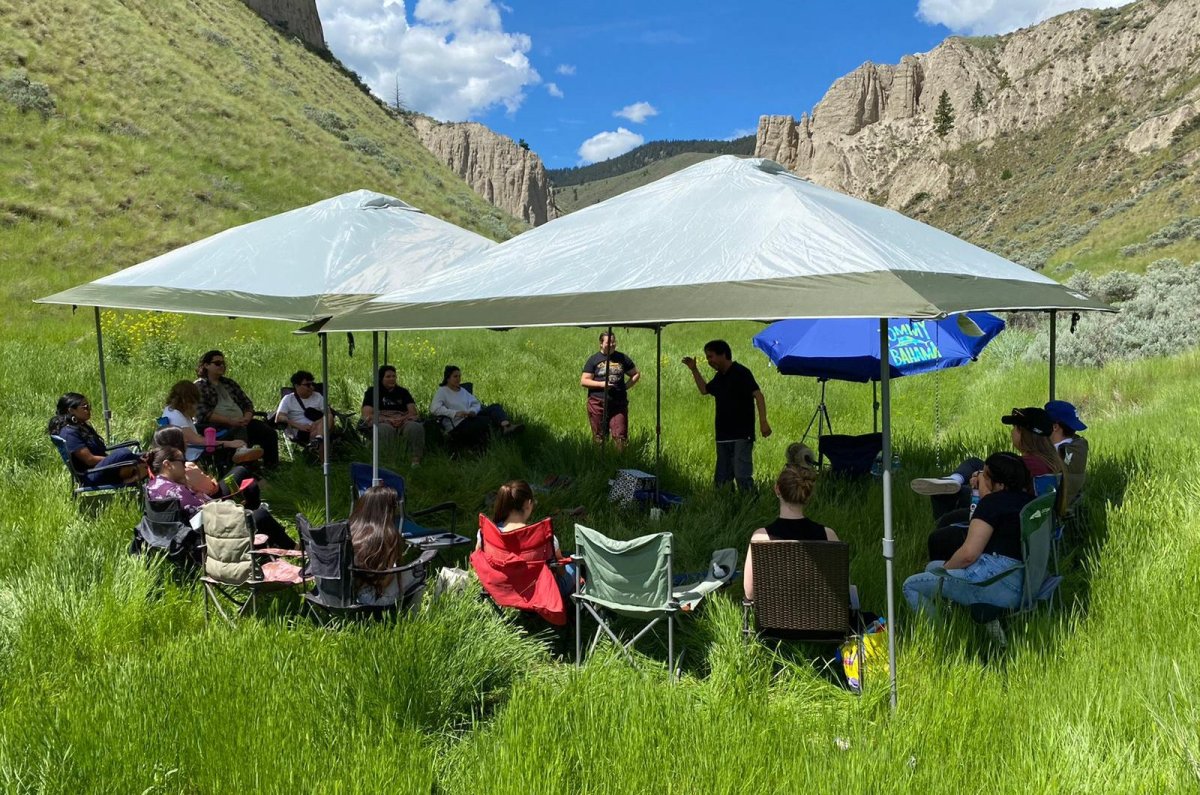Looking for more Indigenous news? Find our stories here.

Qwelmínte Secwépemc is working to build the next generation of leaders with their internship program.
“That is our promise to our ancestors and to the next generations – to share what we know and to protect the lands,” said Tamara Archie, communications, community engagement, education and outreach manager with Qwelmínte Secwépemc.
“Sharing with our youth and making those connections and relationships is a lot of what our culture is based on.”
Qwelmínte Secwépemc is a collective of six Secwépemc communities. They’ve spent the past four years building up an internship program with the goal of combining Indigenous and western knowledge and fostering the stewards of tomorrow.
Sunny LeBourdais, Qwelmínte Secwépemc’s director of transformation, saw there was a “capacity issue” not only within the community but also throughout the B.C. government, so she created the program as a succession plan.
“She wanted to ensure that she was setting up that next generation of leadership,” said Archie.
Lynn Morrison, one of the interns from Simpcw First Nation, found out about the program through a family member who works at Qwelmínte Secwépemc. She was inspired by his passion and by seeing someone just a few years older than her being involved in policy-making and on-the-ground work.

Get daily National news
“Every day you learn something about yourself, something about your community, something about what’s happening in the community around you,” said Morrison.
“It gives you the opportunity to learn at your own pace but also immerse yourself in other cultures, unique communities and protocols.”
After the program’s first year, Qwelmínte Secwépemc staff talked about wanting to find ways for youth to do more.
“To connect it to our culture, and without that disruption of residential schools, our whole community and connection and relationship base was all about that teaching,” said Archie.
“And so what we do here is built on the back of sharing what we know, and it’s about being in relation to each other.”
Qwelmínte Secwépemc’s program is grounded in Secwépemc and Indigenous law. It operates with the “walking on two legs” approach, which balances western and Indigenous ways of knowing.
“Walking on two legs allows us to show our youth that when they strengthen both together and walk in a good way, they’re given the opportunity to take their western education and apply it into an Indigenous organization or back into their own communities,” said Archie.

Sophie Collins is a former intern and now staff at Qwelmínte Secwépemc. She’s Esk’etemc on her mom’s side and Métis on her father’s.
With a background in STEM, Collins did a cumulative effects project on food sources and climate change to see what would happen as climate change progressed over the next 50 years. She was thrilled to be able to work within both her culture and her educational background.
“You get to go out on the land, speak with community and elders, you’re constantly learning from strong Indigenous women who have paved the way before you and you’re doing projects that benefit communities,” said Collins.
“I came in very green to my Indigenous culture but the program helped me connect with my parents and grandma and it felt like all of our hearts grew three sizes that summer.”
And the program isn’t just for Indigenous youth, it has also had several non-Indigenous interns. Archie says it gives them the opportunity to really foster the notion of reconciliation.
“We’re reaching not just this one non-Indigenous person but they’re going home and sharing with their friends and families, which helps break down stereotypes that have been generated through governance systems,” said Archie.
“That’s how we’re going to get that positive change, by being inclusive.”









Comments